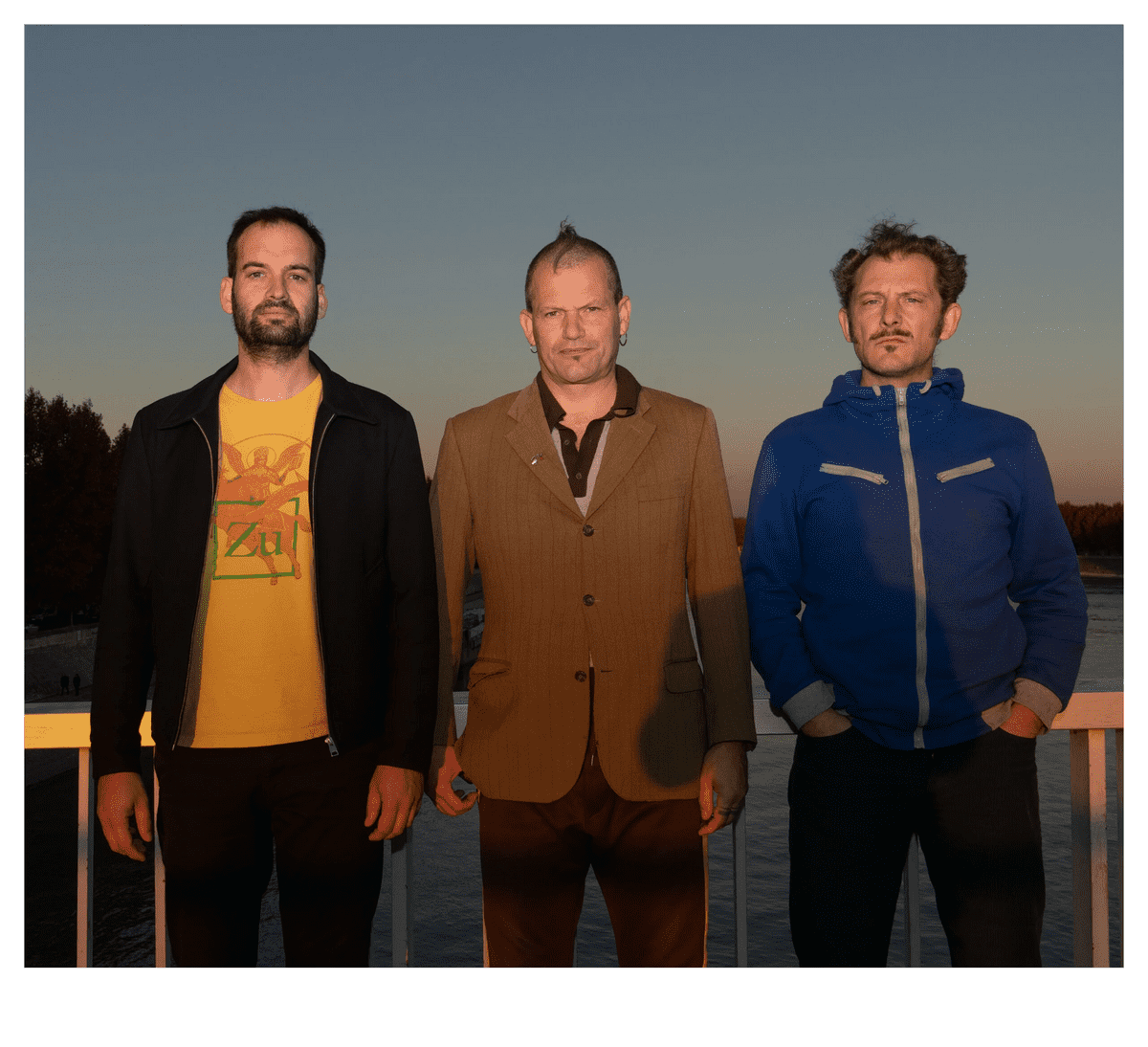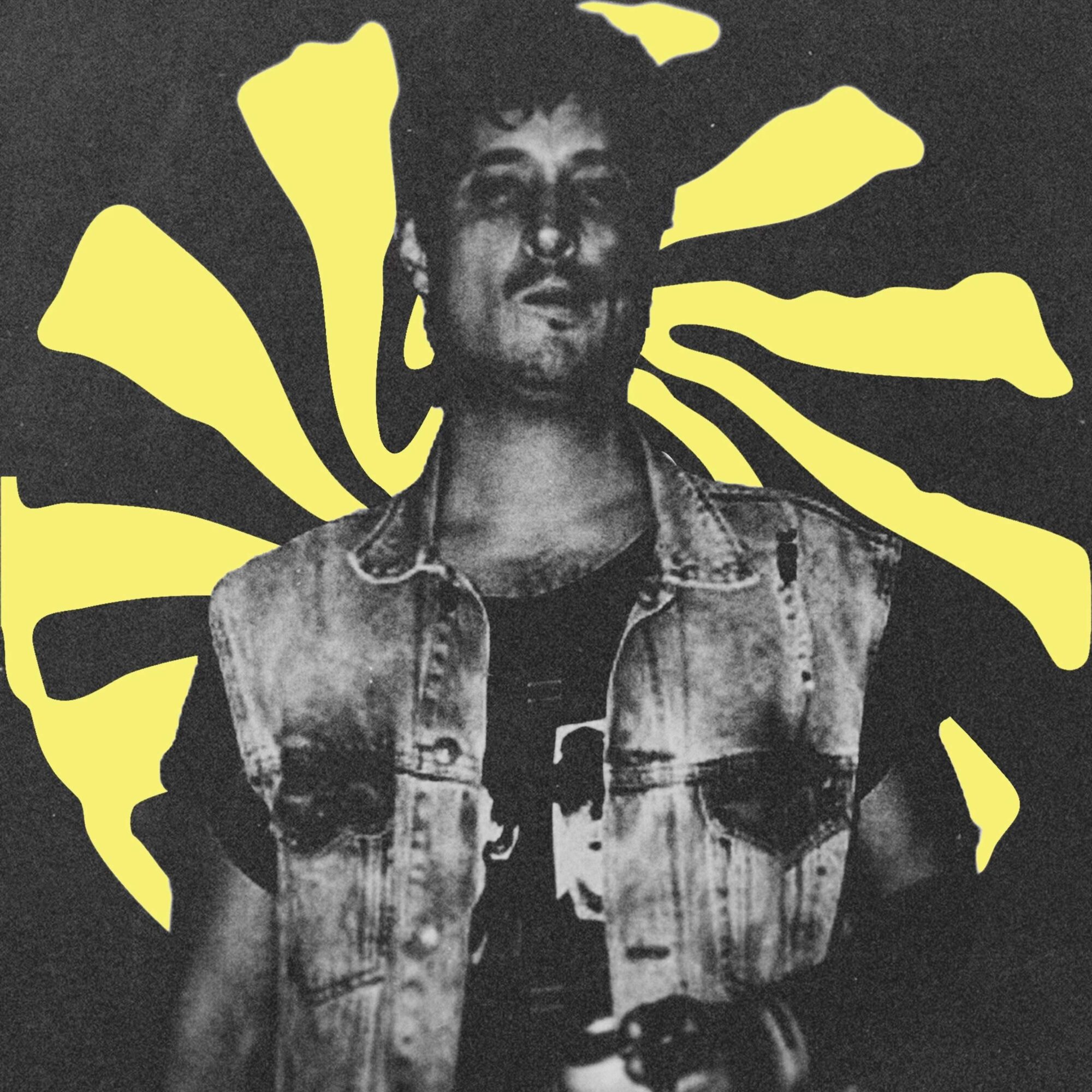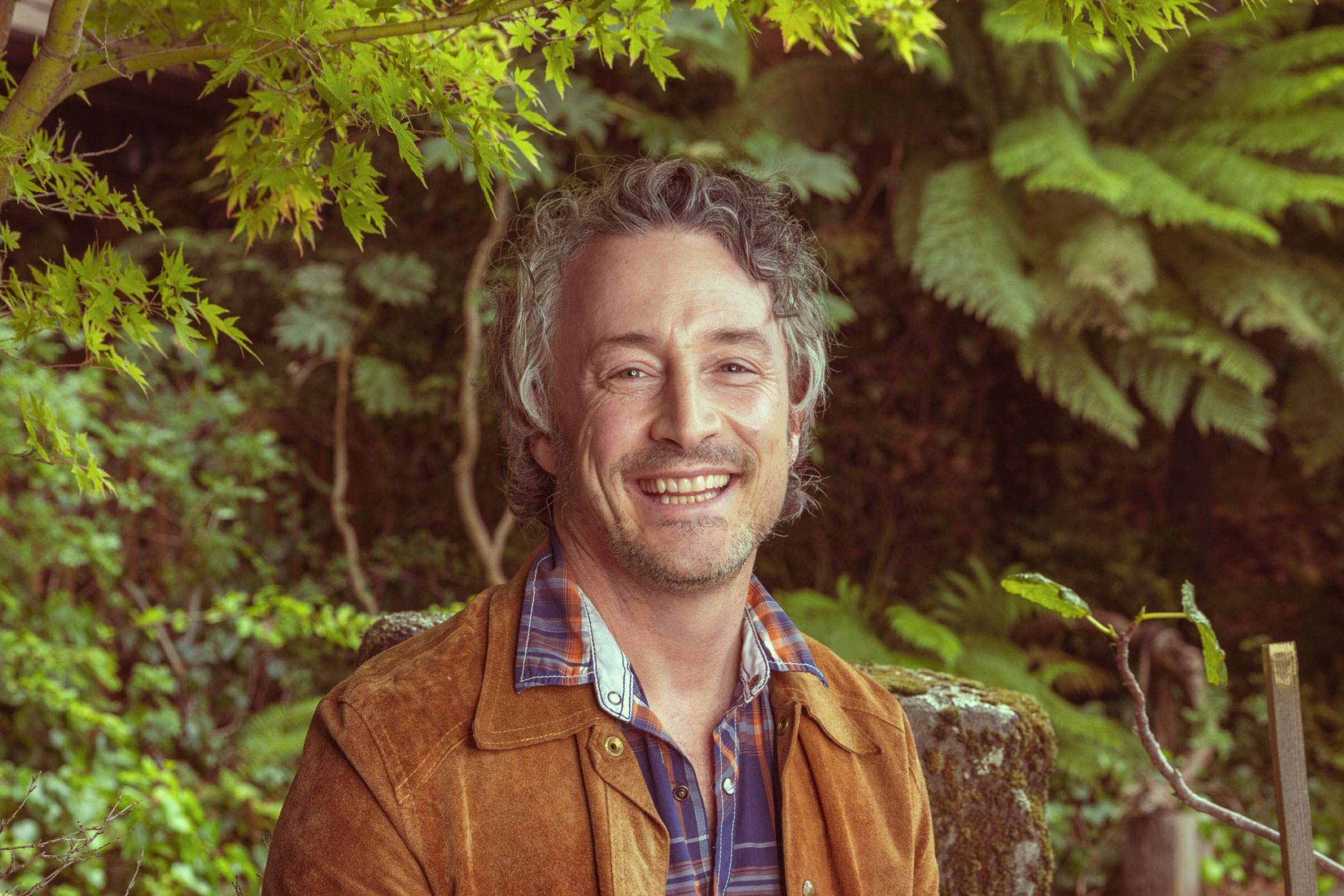Floh de Cologne interview
Floh de Cologne formed in 1966 in Cologne, Germany. A collective of creative theatre students and musicians. Their social commentary remains relevant to this day. Interview with Dick Städtler.
Where and when did you grow up? Was music a big part of your family life?
I was born on the 12th December 1948 in Hilden, Düsseldorf and grew up in Haan close to Wuppertal. My family had its own band (my father played the piano, my brother clarinet and saxophone, me the drums, and later my mother the contrabass). We played modern jazz inspired by the “Great American Songbook” and Dave Brubeck/”Take Five”! There was no music scene around us – just an all-male-choir.
When did you begin playing music? What was your first instrument? Who were your major influences?
At the age of 5 I started to play flute and piano, with 9 the drums, with 12 transverse flute in the school orchestrated with 14 guitar and bass. My influence was classical music and modern jazz.
What bands were you with prior to the formation of “Floh de Cologne”?
My own Band “The Survivors” from 1963-1966. I’ve been the lead singer on the drums. Our repertoire: The Beatles, The Who, The Kinks.
Can you elaborate the formation of “Floh de Cologne”?
“Floh de Cologne” was founded in January 1966 as a student’s cabaret and transformed to a satiric beat group with German lyrics in 1968/1969.
“With drums, an electric guitar and no pants, we played a distorted version of a hit by Heintje, “Mama”, in the way Jimi Hendrix performed the American anthem in Woodstock.”
When and where did Floh de Cologne play their first gig? Do you remember the first song the band played? How was the band accepted by the audience?
As a band in September 1968, with Frank Zappa at the “Internationale Essener Songtage” in the“Grugahalle” in Essen in front of 10.000 people. With drums, an electric guitar and no pants, we played a distorted version of a hit by Heintje, “Mama”, in the way Jimi Hendrix performed the American anthem in Woodstock. The crowd was stoned and enthusiastic.
The first complete beat program was called “7. Programm” and had its premiere in March 1969 in Reutlingen–it was a scandal!!! Mayors and all old spectators fled the theater. From 1966 until the end of 1969, we played in Cologne twice a week in a restaurant called “Franziskaner am Gürzenich” in front of about 80 people. From the end of 1969 onwards, we were on tour with the program “Fließbandbabys Beat Show”, first in Germany, then later in whole Europe.
How did you decide to use the name “Floh de Cologne”?
It was quite normal for cabarets to have a name which sounds almost like a real term.
For example: “Rationaltheater” instead of “Nationaltheater” in Munich, “Die Machtwächter” instead of “Nachtwächter” – and “Floh de Cologne” instead of “Eau de Cologne”. But a flea (“Floh”) stings, bites, pinches, which translates in German to: “stechen, beißen, zwicken”. This was also the name of our opening track in our first program in January 1966.
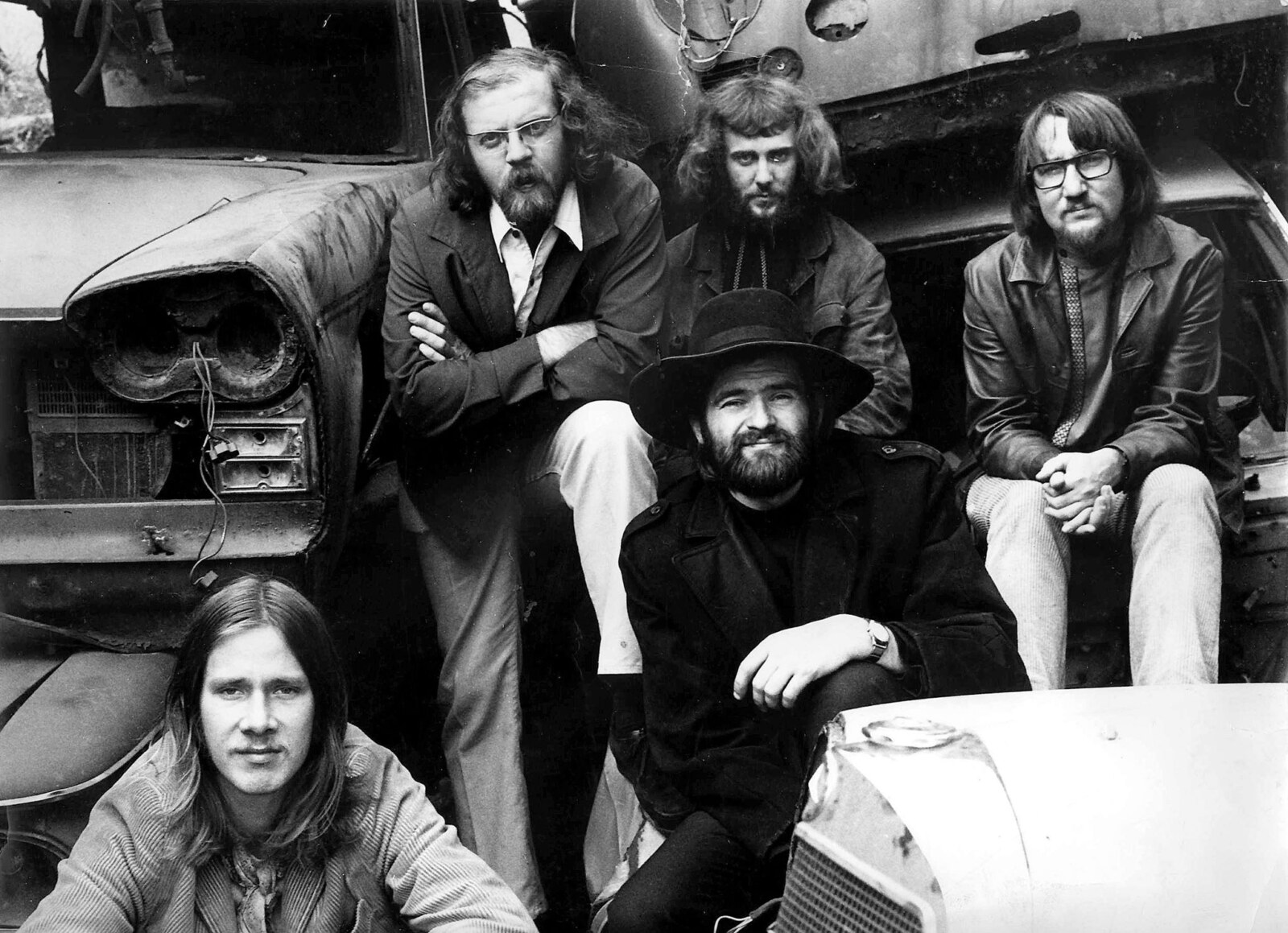
What influenced the band’s sound?
Mothers of Invention/Zappa, which we later got friends with; Jim Morrison/The Doors, The Kinks, Ennio Morricone and Pink Floyd.
Did the size of audiences increase following the release of your debut?
Following our performance right after Jimi Hendrix on the German Woodstock Festival in Fehmarn in September 1969, we got popular. But with the first German Rock-Opera “Profitgeier”, which had its premiere in December 1970, we got famous. Therewith we had for the first time the biggest audience in show business in Germany (ahead of Udo Jürgens).
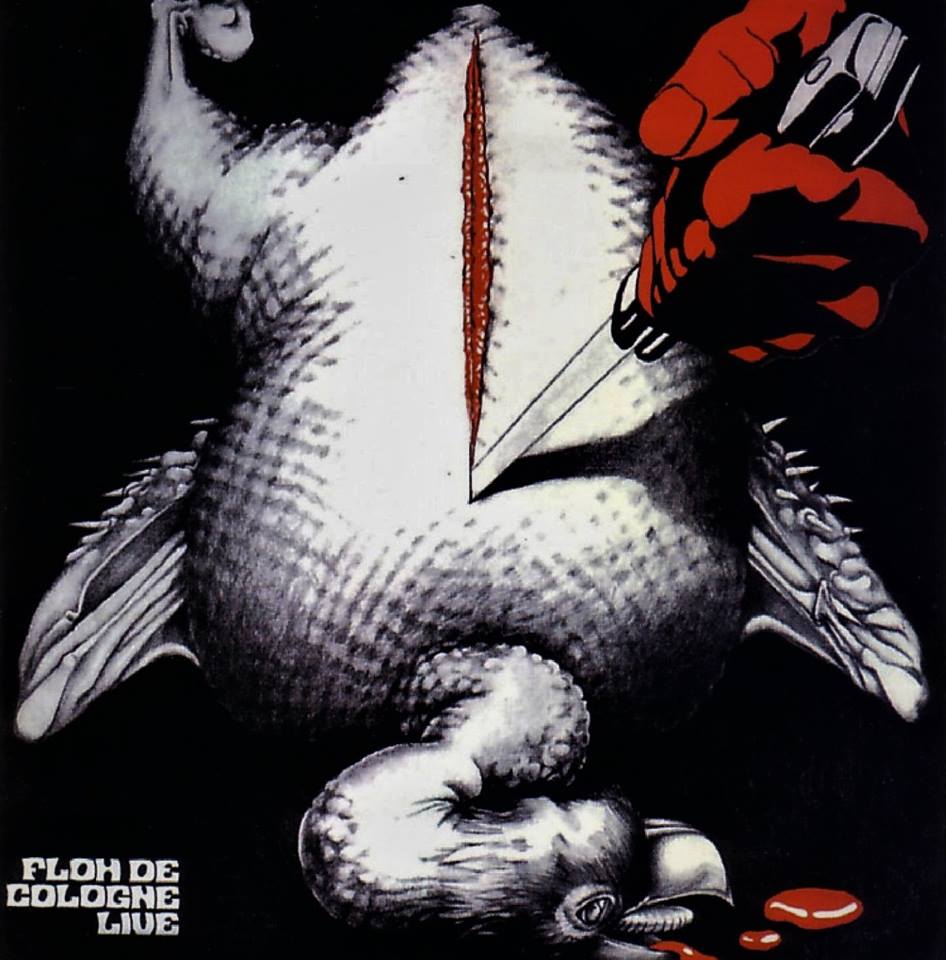
Before releasing “Fließbandbabys Beat-Show” via Ohr Records, the band recorded album entitled “Vietnam”. It was released on Pläne and the band joined forces with Dieter Süverkrüp. Who was Dieter Süverkrüp? You were probably not part of the band yet? How did you join the band?
“Vietnam” was the third program of the “Floh” as a cabaret. But as this program was too short for an LP, Dieter Süverkrüp joined us with his songs. Süverkrüp was one of the greatest Liedermacher/Singer-Songwriters in Germany along Degenhardt, Wader and Hüsch.
I joined “Floh de Cologne” when they wanted to switch from cabaret to a beat group, to reach a younger audience. I had composed the music for the rock musical “Vietrock” in Summer 1968 at the “Studiobühne” of the University in Cologne – As the “Flöhe” were unable to compose, they asked me if I could help them out. Due the fact, that someone needed to sing and play the E-Guitar for the “7. Programm”, I suddenly became a “Floh”.
How did you get signed to Ohr?
We’ve been performing parts of “Fließbandbaby” in the final of the last “Deutsche Beatmeisterschaft” in Spring 1970 in Recklinghausen. The jury included people from “Hansa Records” in Berlin, “Metronom/Vertrieb” and Rolf-Ulrich Kaiser, which had known us already from our time as a cabaret and also invited us to the “Internationale Essener Songtage”.
Here it was decided that we should become the number 000001 of the new label “Ohr”.
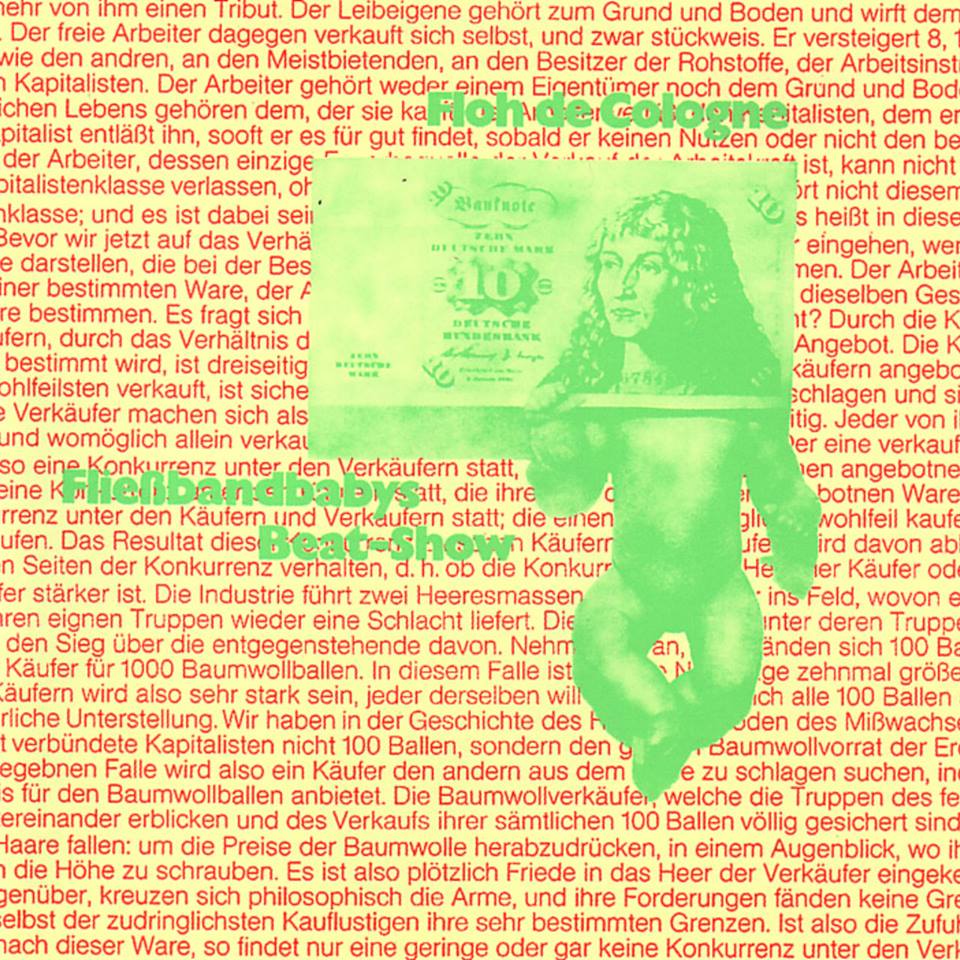
How did Rolf-Ulrich Kaiser approached you?
We wanted a young audience, so we wrote lyrics about the situation of young laborers. The result were songs like “Flissbandbaby, manchmal traum ich von der Fabrik, in der du arbeiten musst”. We recorded the LP in two days in a studio in Cologne by playing everything live and mixing it afterwards – no overdubs, simply playing live with our stage equipment, Dynacord amplifiers and speakers. The producer was Rolf-Ulrich Kaiser; however, he wasn’t in the studio while we recorded. We were the only ones at that time who had the clause in our contract, that “Floh de Cologne” decides what was going to be on the record.
What were the influences and inspirations for the songs recorded?
No influence, no inspiration – we simply played our stage show “Fließbandbaby” live.
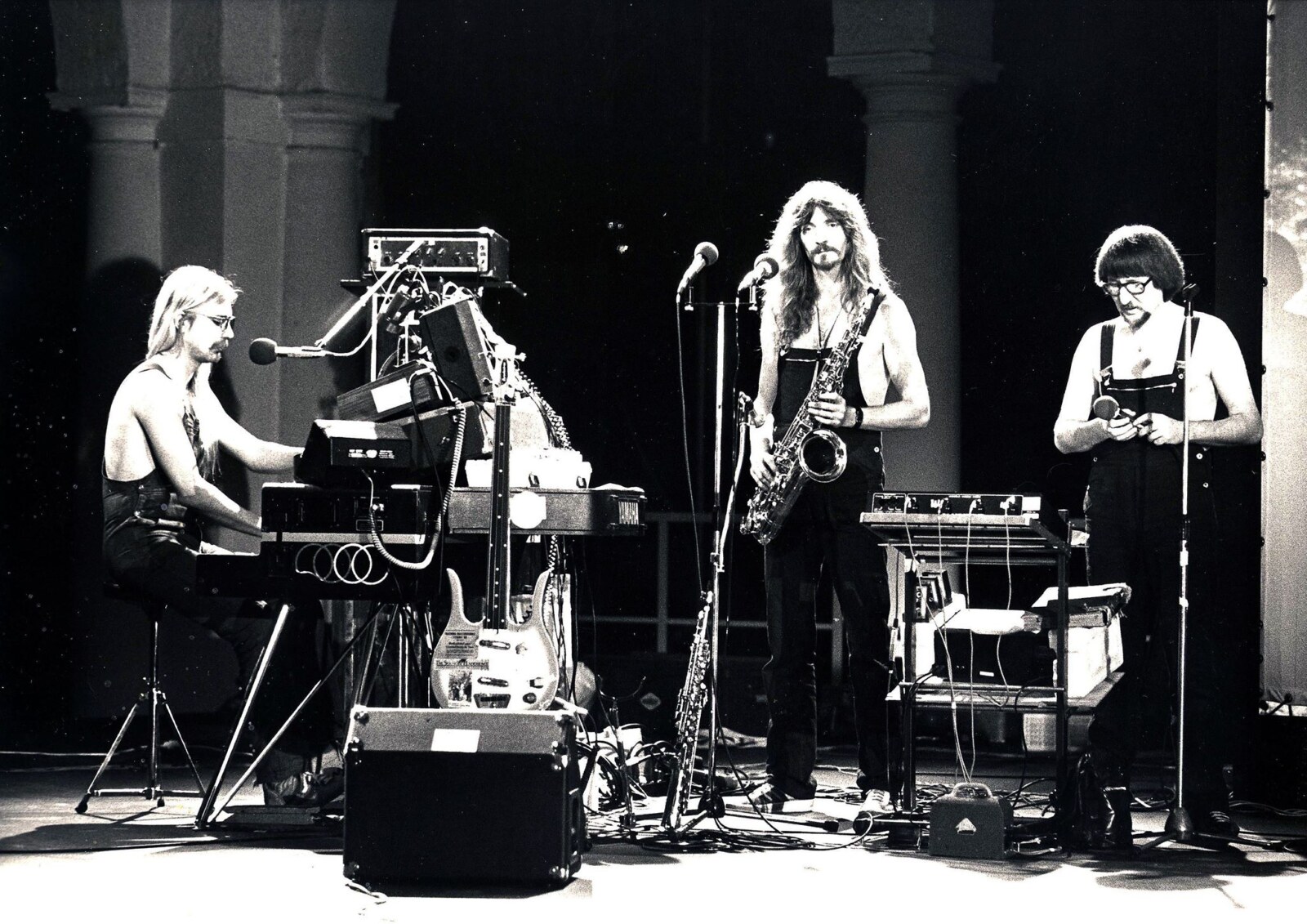
Would you share your insight on the albums’ tracks?
“Die Luft gehört denen, die sie atmen” has brilliant lyrics which are still relevant.
The music was very simple at that point, simply because we were no real musicians, but theatre scholars. Afterwards, as the studied musician Vridolin Enxing joined us, we became a pretty good band…
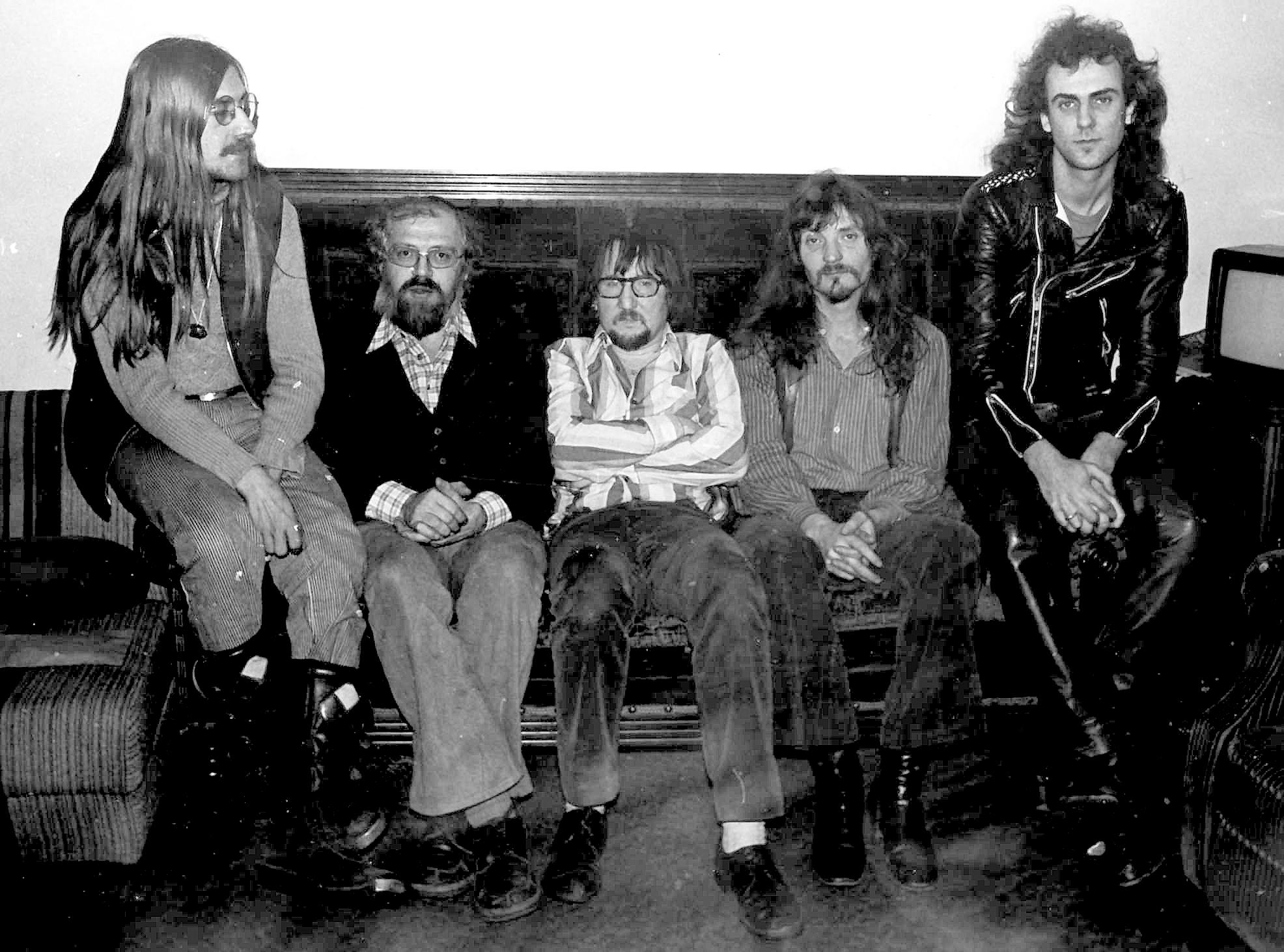
Floh de Cologne was politically very active. What were the main ideas behind your political agenda, what was the notion behind your activism?
We wanted to change the World – we’ve been part of the “APO”, which fought against the Vietnam War and against the old Nazis who were still everywhere in the universities, schools, in the courts and in the politics. We also wanted a human socialism, definitely not a turbo-capitalism.
How do you see the current political environment?
I can see that the earth is breaking down – and that shareholder value, meaning the quickest possible profit is above all, what humanity means. Humanity these days only occurs in donation campaigns in tv, and people are too tired to get active…
“Later, when we were better musicians, we got very interested in the best sound possible, that’s why we made our records with Conny Plank.”
How pleased was the band with the sound of the album? What, if anything, would you like to have been different from the finished product?
We did not care about the sound, neither did we care about the sales numbers – the record was just an advertisement for our live shows, which were important to us. Later, when we were better musicians, we got very interested in the best sound possible, that’s why we made our records with Conny Plank.
Would you agree that your live album “Lucky Streik” was one of the finest moments in the band?
No. “Lucky Streik” was very successful – it was recorded live at a concert in Gummersbach near Cologne, but it was not our best record, that was probably “Mumien”.
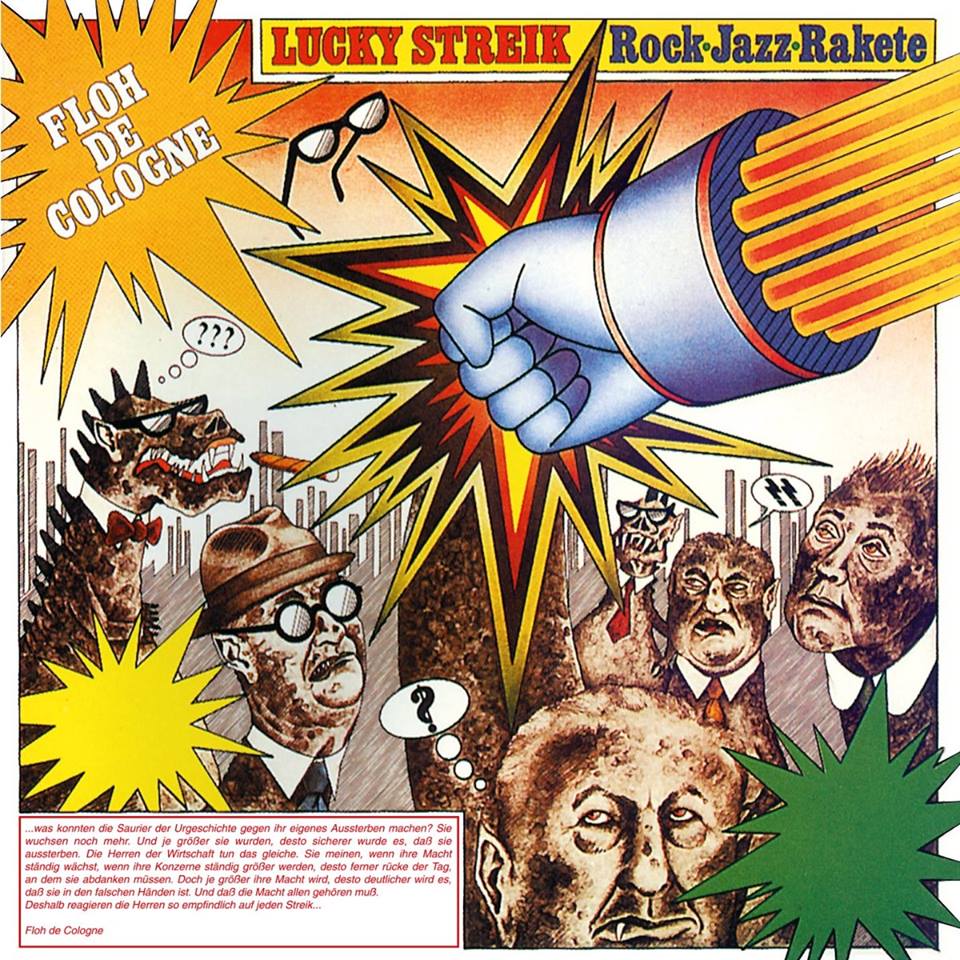
How about “Profitgeier”? The album is notable for being one of the few LP’s to get a release in the GDR. How did that happen and why in your opinion?
“Profitgeier” was the first German rock opera – and they were classic songs that explained capitalism – so it was in the interest of Amiga, the GDR Record Company, to bring this view to their young people, because it was more sensual than their Marx/Engels training. Floh de Cologne also played regularly at the “Festival des politischen Liedes” in East Berlin – as well as two uncensored tours through the GDR (1975 and 1978).
“Geyer-Symphonie” followed. The album was released in 1973. It’s very political and full of social commentary. It has a very interesting concept to it. It’s about industrialist who made his fortune through the Nazi ties. His name was Friedrich Flick. He was sentenced to seven years at the Nuremberg trials but was allowed to keep his money, and died in 1972 as one of the richest people in Europe. You decided to experiment with studio effects, intelligent lyricism and surreal atmosphere.
You have explained it wonderful! We were allowed to make music and songs for a film of the only private film company in the GDR, which was filming at the memorial service for “FF” and made a satirical documentary movie out of it. That inspired us to make it into a live show – and it was the first rock show in Germany with movie inserts that we also played interactively with. Since there was no DVD at that time, we had to make appropriate sound collages, because you could not see the movie clips.
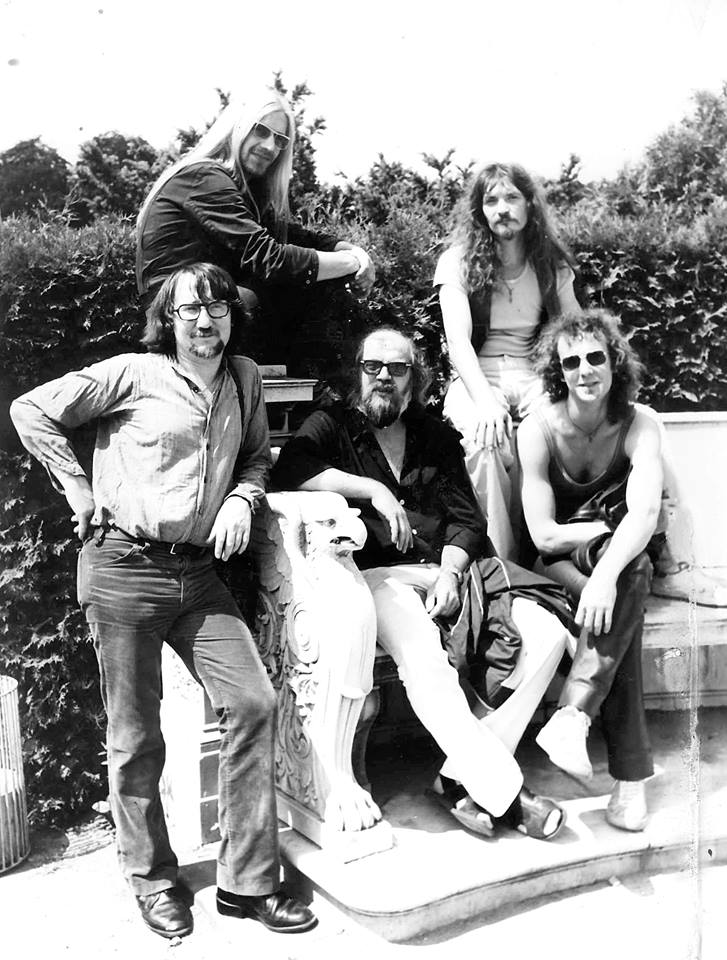
“Mumien” followed, which was a result of events that happened on September 11, 1973, when the Chilean army overthrew country’s democratically elected Marxist president and installed a military dictator.
Well described! It was a shock to us, also because shortly before we had met Chilean musicians at the “Weltjugendfestspiele” in East Berlin, who were now in exile: Quilapayun and Inti Illimani. There was a black book documenting the involvement of German companies in the coup in Chile, which inspired us to write this cantata – as well as the new Latin American song movement (based on Bach’s Pentatonic). We wanted to connect their music with European rock. Whenever we played “Mumien”, there were many tears, not only by the Chilean crowd.
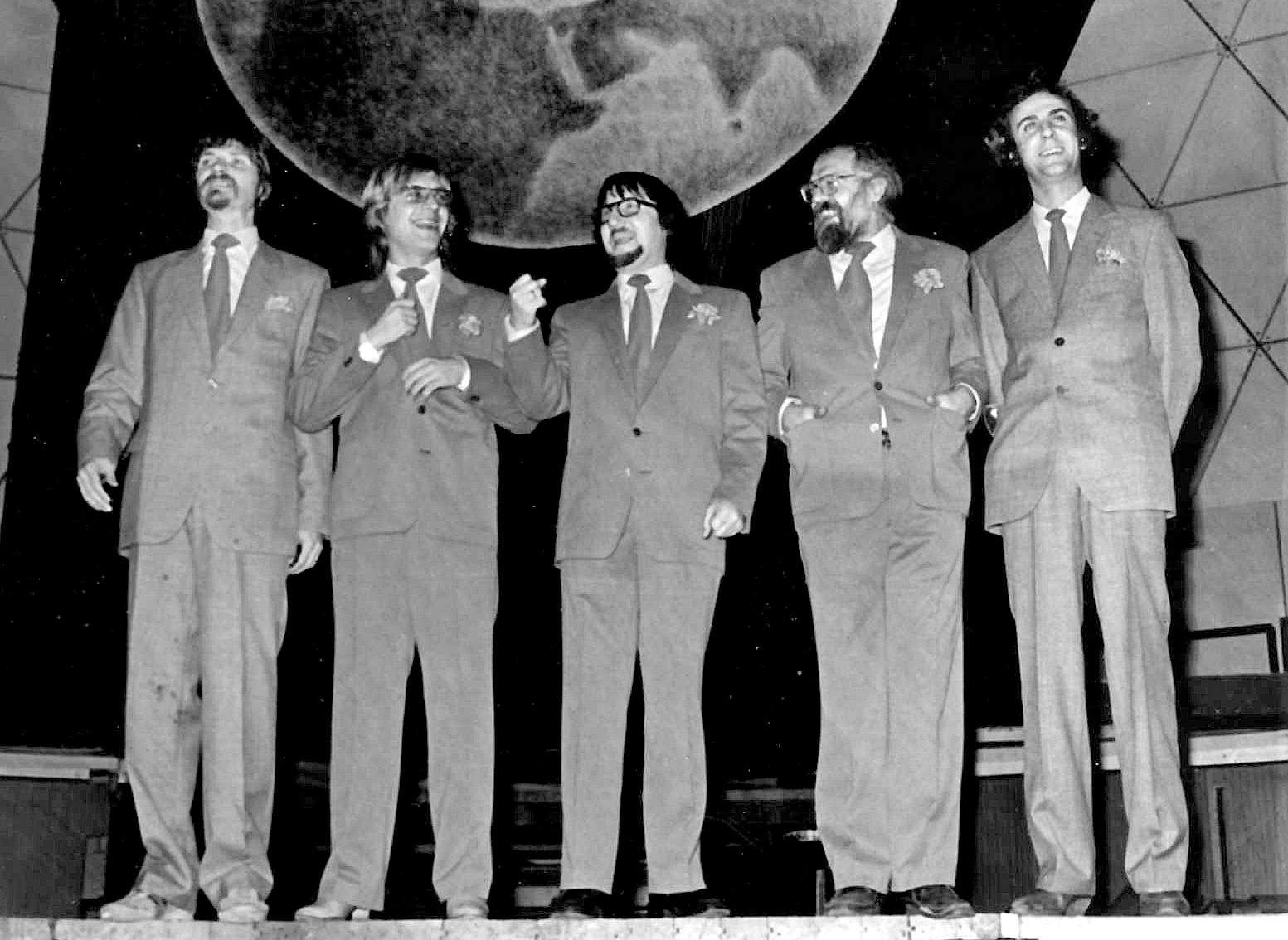
You released a few more albums. What was happening at the time?
There was a big peace movement in Germany against the deployment of medium range missiles/cruise missiles, so we came up with the program “Entrüstung”.
But before, in 1979/80 we had a revival with the second German rock opera “Koslowsky” about a steel mill in southern Germany, which should be closed (and today is) – there was a big story about the “flöhe” in the German “Stern” magazine over ten pages, after that all concerts were sold out.
How did the band stop?
We were tired. Since we did not have any roadies, we hauled, built up, dismantled everything ourselves and drove the trucks – playing the shows was the least – also the management, the PR work, we did everything by ourselves. Add to that, our record company had asked if they could have our band manager Dieter Klemm as a boss. Also, everybody wanted to try something different in their lives again. We wanted to have a nice farewell tour with bus drivers and roadies and asked the German concert promoter guru Fritz Rau, whom we had known for a long time, if he would organize it. Before that we made our last record with the songs from 1980-82 “Faaterland” and organized a big last 8-hour-concert in Cologne in May 1983, with many colleagues and friends in front of an audience of 6.000 people.
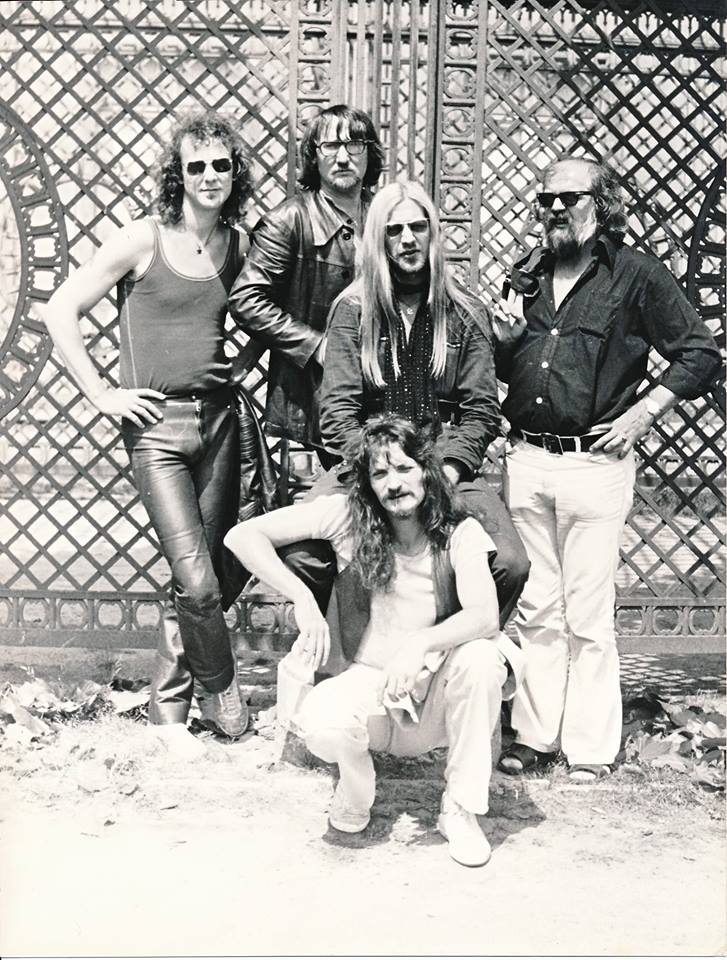
Looking back, what was the highlight of your time in the band? Which songs are you most proud of? Where and when was your most memorable gig?
There were many highlights, there’s also many good songs from me.
Our largest gig was with “Lucky Streik” in East Berlin in 1973 on the “Alexanderplatz”, where 60,000 people attended (some say 100.000, which also could be…).
Afterwards you felt a few centimeters taller, but also aware of the danger of manipulating large crowds with loud music, in whatever direction…
Is there any unreleased material?
Oh yes! We did a lot of film music; for three years each month a satirical television show called “Dreizack” with many songs; we did some drama music and some songs for TV youth shows.
What were some of the bands you enjoyed in the 1960s and 1970s?
The Beatles, The Stones, The Who, The Kinks, The Doors, Jimi Hendrix, Eric Clapton.
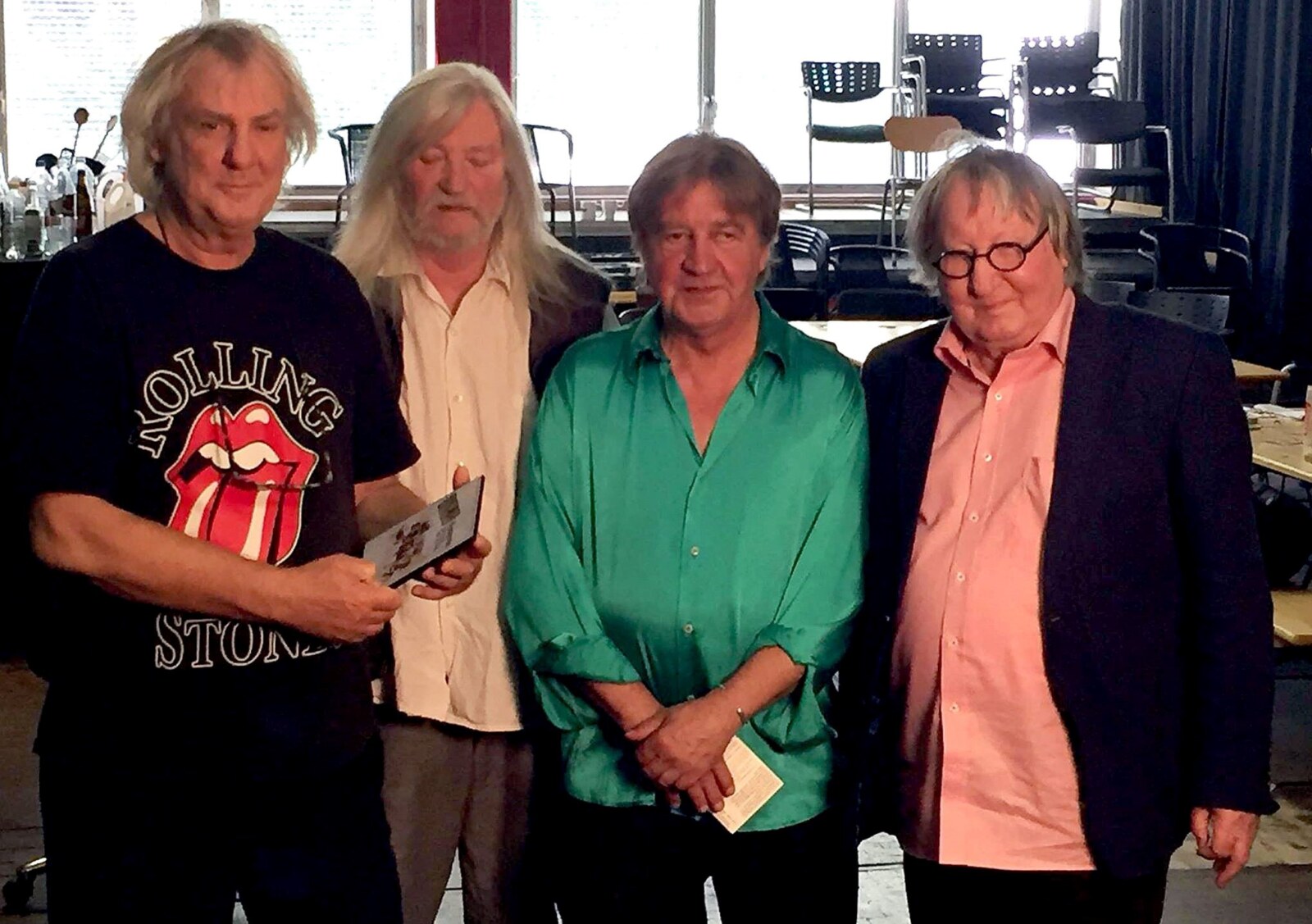
What currently occupies your life? We would appreciate if you can present us IMAL.
Musiktheater Two “Flöhe” (the third, Theo König died last year), Vridolin Enxing and me are leading a unique project in Europe where about 25 young people between the age of 16 and 24 learn how to write, compose, act, dance and sing in their own musical. They also do the set design, the costumes, everything – and then play it open to the public in a theater in front of a paying audience and critical press – so it has to be professional.
So far, we have brought 10 productions to the stage in 20 years. So, we passion all our experiences in the field of music theater to the next generations.
Thank you for taking your time. Last word is yours.
All populists these days, whether right or left, are missing out one thing: the dialectic.
Thesis – antithesis – synthesis, also includes the tolerance of the other side to come to a mutually acceptable compromise.
– Klemen Breznikar
Translation by Jannik Ehrenfried
All photos © Floh de Cologne

